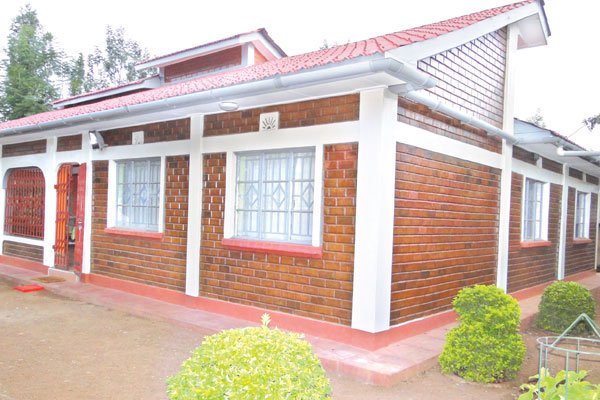BY WAHINYA HENRY
The notion or mentality associated with construction of imposing stone houses with several rooms, some of which were not needed but were just for prestige associated with affluent families, irked Njoroge Wahonge. “People back in the village stayed in grass-thatched houses.
Must read: How to build your house cheaply
Building a house at that time, even by families seen as rich, was next to impossible. Yet, soil, which is a good building material once reinforced, was available all over,” says the founder of Vumbi Afrique. Wahonge says the name vumbi (dust in Kiswahili) strongly connects soil with housing.
“Conventional construction method has made people think that improved traditional methods of construction or appropriate construction methods are a sign of poverty, but the world has accepted to be a sign of modernity and progress,” he says.
Loosely translated as Ujenzi Bora Afrika, Vumbi Afrque is in the business of offering solutions for affordable housing to those in lower ranks in society and to the rich who, at times have mistaken ‘affordable’ property as ‘cheap’ and meant for the poor”.
However, adoption of the earth architecture technology that uses readily available soil for construction is now in demand in the counties that has left the innovator and his team unable to satisfy.
Properties built by Vumbi can be seen in Nairobi, Kajiado, Kericho,Uasin Gichu and Kiambu counties, among others.
“In Kiambu, we are constructing warehouses where the client will save almost 50 per cent of the estimated costs if we were to use conventional brick and mortar, yet the rental income from the warehouses will remain the same,” says Wahonge.
Vumbi is targeting counties because they have higher populations in need of affordable housing. Moreover, unlike in urban areas, soil is abundant in rural areas. “The significance of the name vumbi is that the dust you see everyday can change lives in Africa.
If the dust we see can be well managed, then we can be able to protect African communities from harsh climatic conditions and that’s why we prefer using soil to construct houses,” he says. Vumbi uses a mixture of soil and a stabilising agents such as soil compressed by different types of machines.
“The UN Habitat supports this technology with the overall agenda of providing shelter for all in the world. The world is going green and to play a role , in that we need to embrace the use of bricks in construction,” says Wakonge.
Must read: The Most Profitable Businesses To Start in Kenya
Wahonge admits that techniques of mixing soil with stabilising supplements is an old concept dating back thousand of years in Africa. Many traditional communities in the continent still use soil mixed with water and cow dung, and sometimes sand as building materials.
Indeed, the majority of rural Kenyans still live in such traditional houses, which continue to be a big impediment to development in Africa. “The poorest client we want on board is someone who can access soil. Any type of soil from loam, clay, sand or even black cotton soil is usable.











